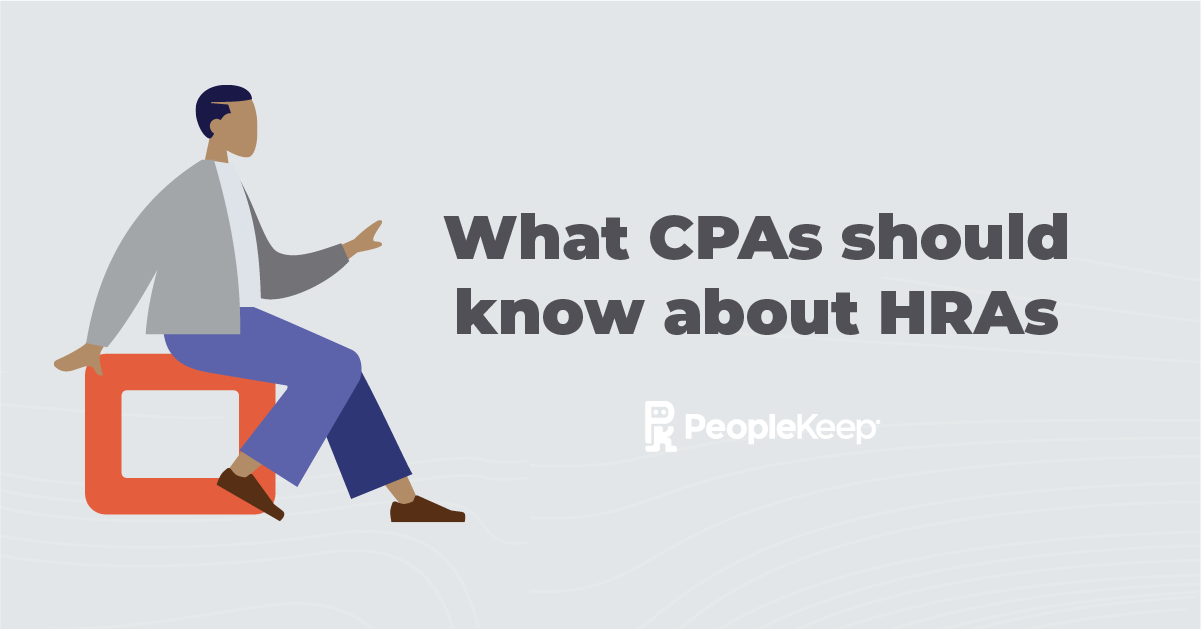What to do when your group health insurance premiums go up
By Holly Bengfort on May 27, 2025 at 2:30 PM
The rising cost of healthcare affects employers and employees alike. As an employer or HR professional, one of the challenges you may face is a premium rate increase in your group health insurance during renewal.
In this article, we'll go over some options to consider when dealing with an increase in health insurance premium costs.
In this blog post, you'll learn:
- The factors that have a profound impact on health insurance costs.
- The average premiums for 2024 and what's expected for 2025.
- How an HRA can help you better manage your healthcare budget.
What causes health insurance premium increases?
Group health insurance premiums go up for several reasons. General market conditions, a change in your plan type, the age of your employees, and where your workers live all play a part in your premium price.
According to KFF1, the average annual premiums for employer-sponsored plans in 2024 were:
- $8,951 for individual coverage
- $25,572 for family coverage
Average premiums for single coverage have risen by 6% compared to the previous year, while premiums for family coverage have increased by 7%.
PwC's latest research on annual medical cost trends projects healthcare spending will increase by the largest amount in 13 years. The Health Research Institute (HRI) at PwC2 anticipates an 8% increase in health costs for the group market and a 7.5% rise for the individual market in 2025.
This annual trend is due to:
- Economic inflation
- Prescription drug spending
- Growing demand3 for weight loss drugs
- Greater utilization of behavioral health services
As your employees age, move to areas with fewer health resources, and face rising drug prices, your health insurance company must adjust rates to make up the difference.
The hard part about these rate increases is that many of the factors that cause them are unavoidable. You can't stop your employees from having birthdays, moving to another ZIP code, or anything else that puts them at greater health risk in the eyes of your health insurance company. So when your health insurance rate goes up, it's there to stay.
While this is unavoidable, a problem arises when group premiums increase drastically. If you’re seeing a double-digit rate increase with your group plan, it may be time to look at other options.
Now, let's dive into your options for saving on health coverage when that happens.
Option 1: Cancel your group policy and sign up for a stand-alone health reimbursement arrangement (HRA)
One way to deal with the rising cost of health insurance is to cancel your group policy and offer your employees a stand-alone health reimbursement arrangement (HRA).
A stand-alone HRA is a budget-friendly alternative to traditional group health insurance. HRAs are employer-funded health benefits. They allow employers to offer tax-free reimbursements to their employees for individual health insurance premiums and more than 200 types of qualifying out-of-pocket costs.
A wide variety of expenses qualify for HRA reimbursement, such as:
- Monthly premiums for vision, dental, and healthcare plans
- Copays for doctor visits
- Prescription drug costs
- Over-the-counter medication
The two types of HRAs that can replace group health insurance are the individual coverage HRA (ICHRA) and the qualified small employer HRA (QSEHRA). With an ICHRA, employers can categorize workers by different employee classes and tailor their benefit design to best fit the needs of each class, including differentiating allowance amounts. The ICHRA is also a great solution for an applicable large employer (ALE) that needs to satisfy the Affordable Care Act's employer mandate. While the ICHRA works for organizations of all sizes, the QSEHRA is only for organizations with fewer than 50 full-time equivalent employees (FTEs).
Here are some of the ways HRAs outperform group health insurance:
- Better control over your budget. With an HRA, you don't have to worry about price increases since you set your employees' monthly allowances. You can offer as much or as little of an allowance as you would like, giving you complete budget control. Plus, you don't have to worry about annual increases. There are no annual rate hikes with an HRA. However, if you’re an ALE, you need to offer an affordable ICHRA allowance to satisfy the employer mandate.
- Unused funds stay with you. If your workers don't use their full allowance by the end of the year, that money goes back to your organization.
- Unique coverage for your unique workforce. Unlike a group health plan, an HRA allows each employee to use their benefit on the qualifying expenses that matter most to them. They get to choose the insurance plans that work for them through the individual marketplace.
As an HRA administration software provider, PeopleKeep by Remodel Health makes managing your new health benefit easy. We review your employees' reimbursement requests to make sure they're spending your money as intended. We also help you maintain IRS compliance. Plus, our award-winning customer support team is ready to help you every step of the way.
Option 2: Ask your healthcare provider for a more affordable quote
If you're not ready to give up on your group health plan, don't hesitate to negotiate with your broker or insurance provider. Engage in open discussions, present your concerns, and explore the possibility of negotiating lower rates. Health insurers understand the impact of rising costs and may be willing to work with you to find a solution.
However, keep in mind that the likelihood that they'll be able to find you a better rate isn't very good. As mentioned above, many of the factors that influence health insurance prices are out of your control. But as the saying goes, it doesn't hurt to ask.
Instead, have your broker look into HRAs. PeopleKeep and Remodel Health can work with your broker to design a benefit that works for your needs.
Option 3: Switch to a high deductible health plan (HDHP) with a group coverage HRA (GCHRA) as a supplement
If your broker can't provide a more affordable quote, another option is to talk to them about switching to a cheaper insurance plan, such as a high deductible health plan (HDHP).
These plans have the lowest monthly premiums but come with higher deductibles. A higher deductible comes with more out-of-pocket costs for your employees before their insurance starts to cover anything. That's where a group coverage HRA (GCHRA) can help. A GCHRA works alongside a group health insurance to cover the qualifying medical costs that aren't fully paid for by the plan.
You can also pair an HDHP with a health savings account (HSA), which allows employees to set aside pre-tax funds to cover their medical care expenses.
Option 4: Implement wellness programs to offset costs
Investing in wellness programs can help improve the overall health of your employees and reduce medical expenses in the long run.
These programs can include initiatives such as:
- Fitness challenges
- Stress management workshops
- Smoking cessation programs
You can offer your employees a wellness stipend to cover things like gym memberships, wearable fitness trackers, home exercise equipment, and other wellness-related expenses.
By promoting a healthy lifestyle within your organization, you can help prevent certain chronic health conditions and reduce the utilization of healthcare services.
Conclusion
Rising healthcare costs are a reality that many businesses have to deal with. However, there are ways to mitigate the impact of premium rate increases. By considering different options, such as HRAs, you can maintain competitive health benefits that attract and retain top talent while keeping your budget intact.
PeopleKeep by Remodel Health's user-friendly software and award-winning customer support team are here to help you make a smooth transition from an unaffordable group health insurance policy to a flexible and sustainable HRA.
This blog article was originally published on September 15, 2021. It was last updated on May 27, 2025.
Check out more resources
See these related articles

What is group health insurance?
Curious about group health insurance? This comprehensive guide explains the ins and outs of group coverage and how it works for your organization.

What is the family glitch, and is it fixed?
Curious about the Family Glitch and its impact on your healthcare coverage? Find out everything you need to know.

What CPAs should know about HRAs
This article will cover everything CPAs or tax professionals need to know about the individual market and HRAs to offer informed guidance to their clients.



